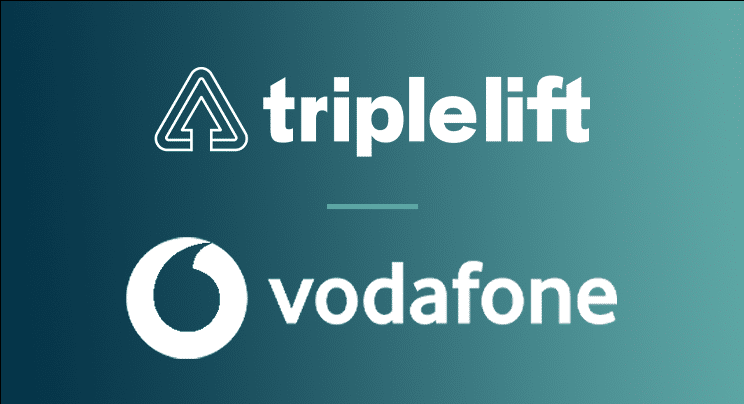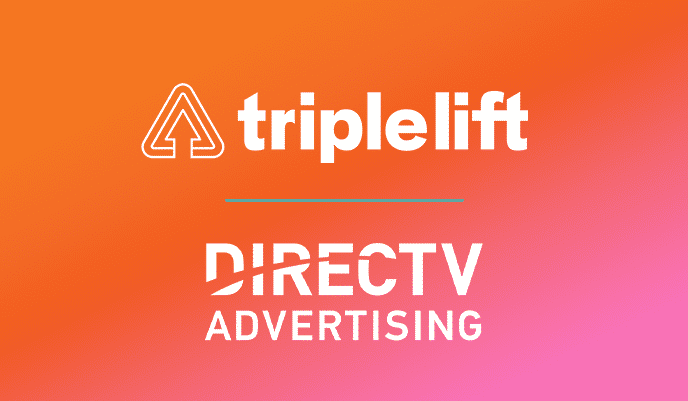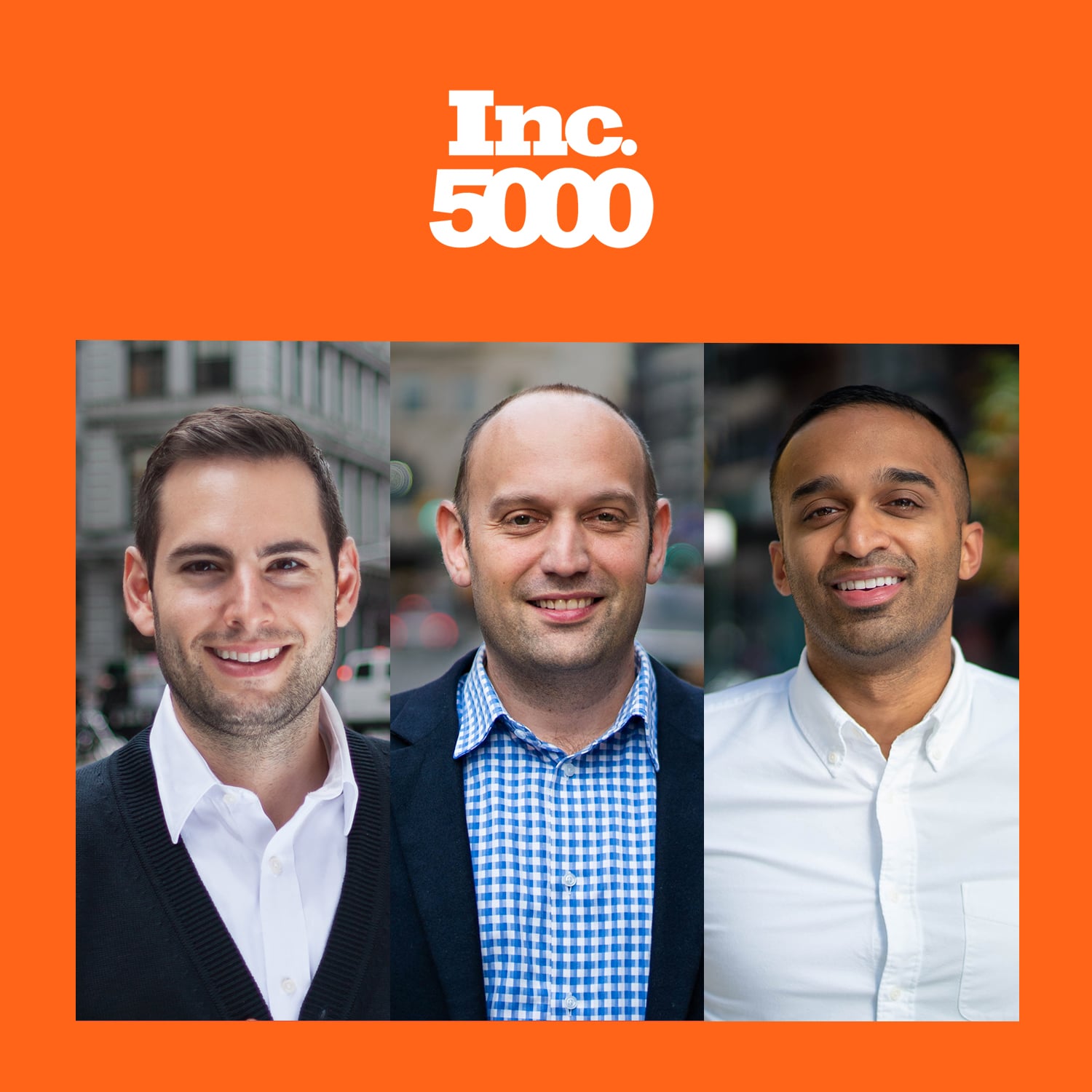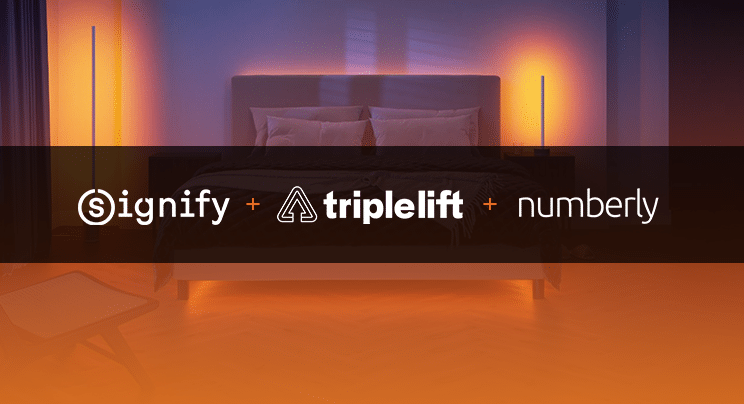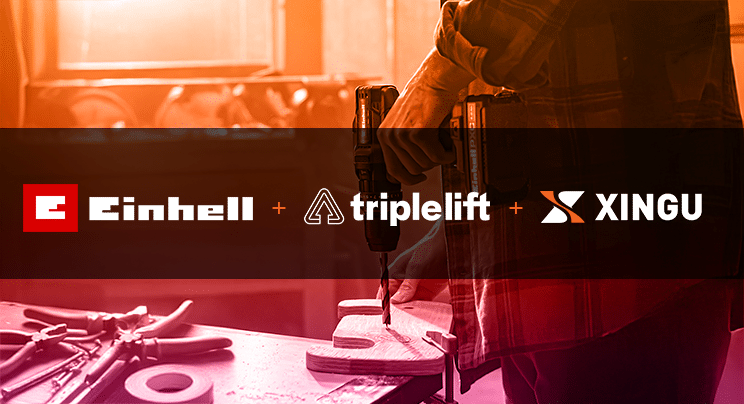For the third year in a row, TripleLift was named to Inc. 5000’s Annual List of America’s Fastest-Growing Private Companies. In the 2019 list, TripleLift ranked No. 562 overall, No. 55 in the Advertising and Marketing category, and No. 49 in New York City. TripleLift continues to reshape the digital advertising landscape with consumer-centric advertising, leveraging its dynamic templating and computer vision technologies to flawlessly deliver and scale in-feed native ads, branded content experiences and programmatic OTT brand integrations. Now, we speak with the three co-founders, CEO Eric Berry, Chief Strategy Officer Ari Lewine, and President Shaun Zacharia, to hear what has helped make them successful and what’s next for the future of the company.
TripleLift continues to reshape the digital advertising landscape with consumer-centric advertising, leveraging its dynamic templating and computer vision technologies to flawlessly deliver and scale in-feed native ads, branded content experiences and programmatic OTT brand integrations. Now, we speak with the three co-founders, CEO Eric Berry, Chief Strategy Officer Ari Lewine, and President Shaun Zacharia, to hear what has helped make them successful and what’s next for the future of the company.
What does it mean for TripleLift to be honored for the third time on the Inc. 5000?
Eric: This is an incredible honor. Over the past eight years, we’ve built a company with truly incredible people whose dedication, passion, and drive have enabled us to really reach this level of growth across the world. Having been on the list for three consecutive years, while being profitable, and now while having revenue significantly in excess of $100 million is, more than anything, a statement that the entire company is operating at such a high level, that we have such a tremendous team that is so capable and can bring on such great people. I’m honored to be a part of this great organization.
Ari: I think its tremendous validation that you can both focus on user-friendly advertising and build a successful business simultaneously.
Shaun: Getting recognized as one of America’s fastest-growing companies is a meaningful milestone. Doing so three times in a row with an accelerating growth rate speaks to the promise of our vision to invent, power, and scale ads that earn consumer attention.
What major challenges did you face to get to this point, and how did you pivot to make sure to keep your growth trajectory so strong?
Eric: TripleLift was built on the idea that great user experience should be the foundation of any advertising experience. But we simply didn’t know the answer about how to make this simple, scalable and effective. We had to iterate nearly a dozen times to get the right mix, the right technology, and the right commercialization. And even then, we have to keep thinking about how to disrupt our business — which in turn has created innumerable more opportunities.
Ari: Many have said that in order for advertising to be effective, it needs to stand out and do something to grab someone’s attention. I think the major challenge for us has been balancing earning consumer attention while driving significantly better performance for marketers.
Shaun: Building a two-sided marketplace from scratch is generally regarded as one of the more difficult things a company can do, and doing so with an offering that’s unprecedented in market only makes the endeavor that much harder to pull off. While we’ve been quick to embrace and drive change, our perseverance and overall commitment to doing the hard work associated with delivering against our mission has been a driving force behind our success. What’s particularly exciting is that once a two-sided marketplace gets going, it benefits from powerful network effects that result in significantly greater value to customers, allowing us to further our mission.
AdExchanger recently noted that there is a slowdown in revenue growth across ad tech, and that TripleLift was one of only three ad tech companies included on Inc. 5000 to achieve revenue over $100 million dollars in 2018. To what do you attribute the success TripleLift had over the last year?
Eric: TripleLift is built around an idea and not a product. We’re built around the notion that advertising should be part of a great user experience instead of forcing a specific type of user experience. We’ve been really thoughtful about how to expand that idea into all the different channels where people consume content, and all the different ways people consume content.
Ari: In general, the bar is being raised in ad tech. There’s more emphasis on solving fraud, running in brand safe environments, and industry initiatives like ads.txt. It tends to be that as the industry continues to improve and raise the bar of quality, companies who have quality as a core focus tend to thrive.
Shaun: As we approach the later stages of the innovation cycle that brought us highly disruptive technologies such as real-time bidding and programmatic advertising, the fastest-growing companies will be those who pioneer net new technologies and markets beyond the application of programmatic advertising to increasingly mature markets such as display and video.
How will TripleLift continue to grow over the next year?
Eric: TripleLift’s mission is inventing, powering, and scaling ads that earn consumer attention wherever people consume content. We invest aggressively in R&D to think about the best monetization opportunities to compliment user experiences and to effectively commercialize them across the various markets in which we operate.
Ari: We’re focused on continuing to drive user-friendly ad experiences across new areas like TV and branded content.
Shaun: In addition to capitalizing on our pole position within one of the single-fastest growing market segments within digital advertising, TripleLift is pioneering new and exciting OTT ad experiences beyond the traditional ad break, such as product placement and other brand integrations that align with consumer preferences and can be activated programmatically. As the streaming wars kick off between Netflix, Amazon, Disney, AT&T, Comcast, Apple, and others, our solutions have the potential to transform the $100B television advertising industry.
What advice do you have for early stage start-up founders?
Eric: It’s always important to understand how the product that you’re building fits into a large idea — and how you plan to effectively build a company around that idea.
Ari: Ask customers, or prospective customers, for feedback every day.
Shaun: Never stop investing in the development of your mission, strategy, and values.
If you could do it all over again what if anything would you do differently?
Eric: We’ve only raised $16.5 million. If anything, I would try to have raised less.
Ari: I prefer to think about, and live in, the current moment. I try to avoid analyzing the past.
Shaun: Memorialize the ride.

